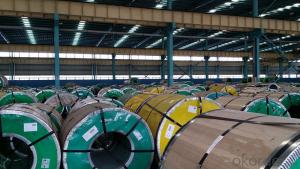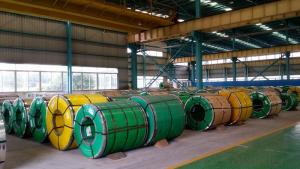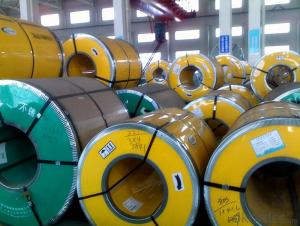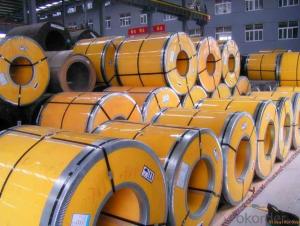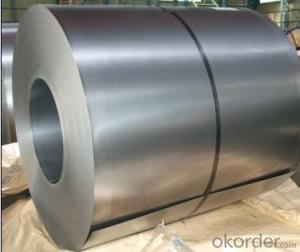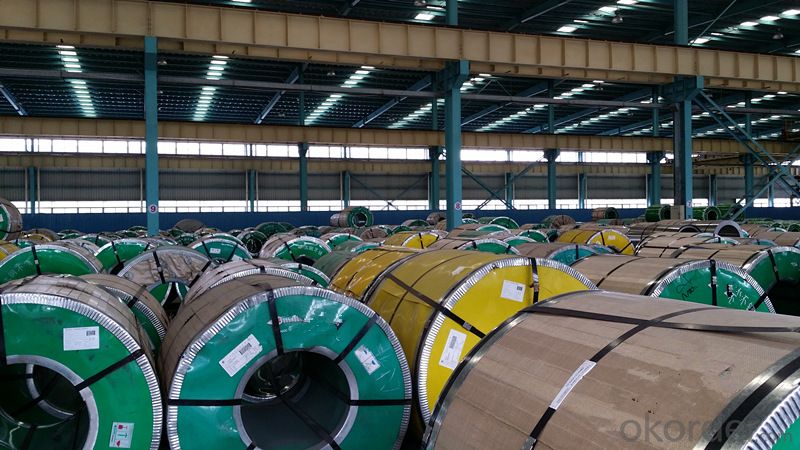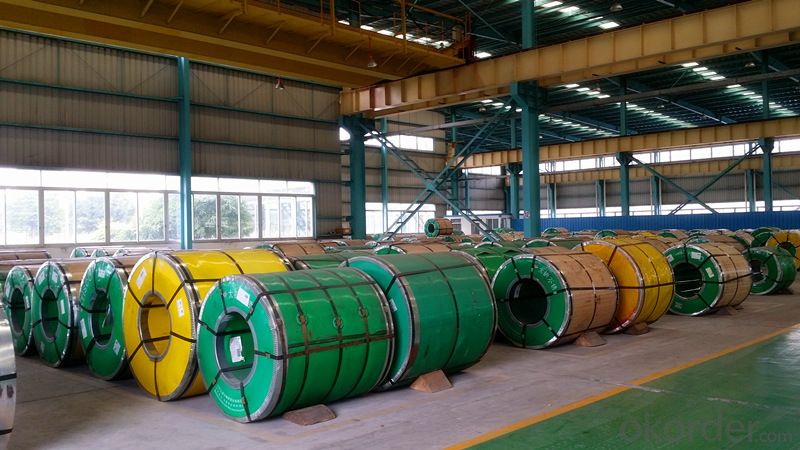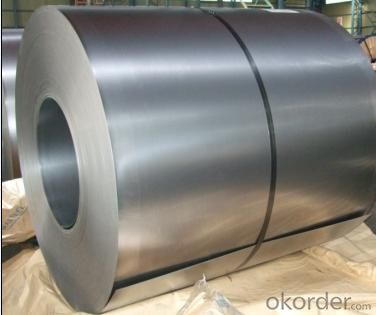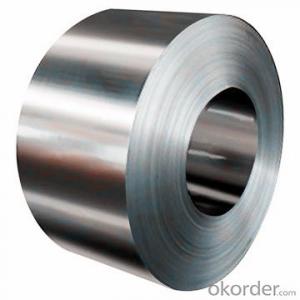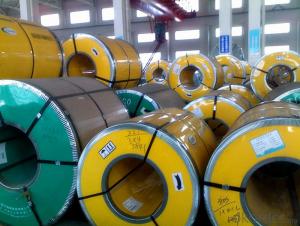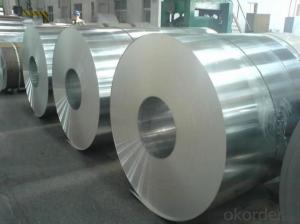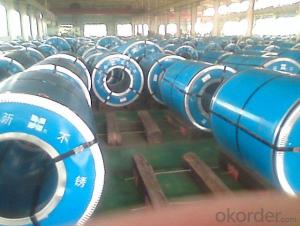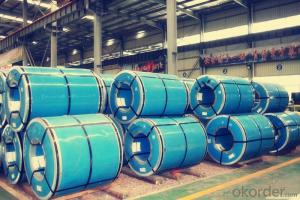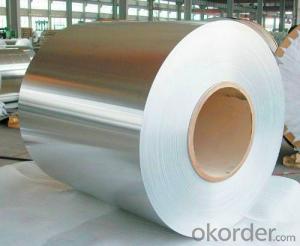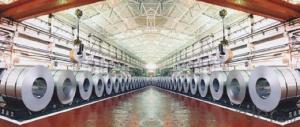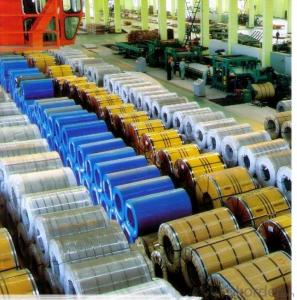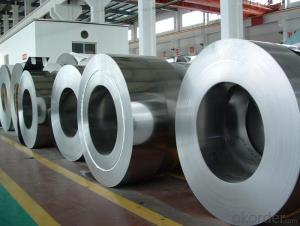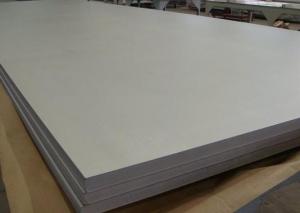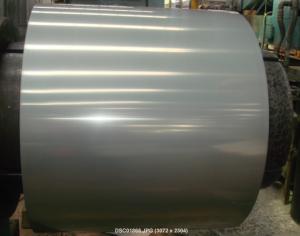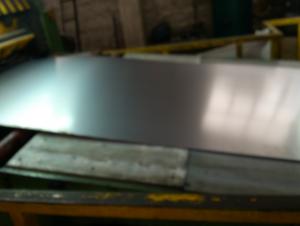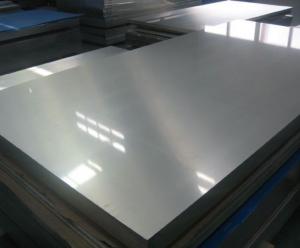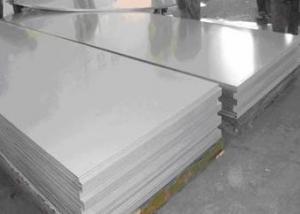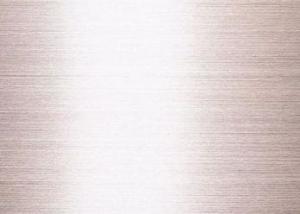Cold Rolled Stainless Steel Coil 304 Grade BA Finish
- Loading Port:
- China Main Port
- Payment Terms:
- TT OR LC
- Min Order Qty:
- -
- Supply Capability:
- -
OKorder Service Pledge
OKorder Financial Service
You Might Also Like
Cold Rolled Stainless Steel Coil 304 Grade BA Finish
Packaging Detail:standard export packing or as customer's requirements
Delivery Detail:7-15 days after the order
MOQ: 25mt
Standard: | AISI,ASTM,BS,DIN,GB,JIS | Grade: | 304 | Thickness: | 0.3-3.0mm |
Place of Origin: | China Mainland | Brand Name: | CNBM | Model Number: | 304 |
Type: | Steel Coil | Technique: | Cold Rolled | Surface Treatment: | 2B, BA |
Application: | Medical instruments, building, chemical food industry agriculture | Width: | 500-2000mm | Length: | Coil |
finish: | BA | item: | 304 cold rolled stainless steel coil | density: | 7.93 |
Cold Rolled Stainless Steel Coil 304 Grade BA Finish
Chemical composition: |
| ||||||
C | Si | Mn | Cr | Ni | S | P | |
≤0.07 | ≤1.0 | ≤2.0 | 18.0~20.0 | 8.0~11.0 | ≤0.03 | ≤0.035 | |
mechanical properties: |
| ||||||
Tensile strength σb (MPa) | Conditions yield strength 0.2 sigma (MPa) | Elongation δ5 (%) | Section shrinkage (%) | Hardness | |||
520 | 205 | 40 | 60 | ≤1 | |||
- Q: Are 111 stainless steel strips suitable for food processing equipment?
- Yes, 111 stainless steel strips are suitable for food processing equipment.
- Q: Are 111 stainless steel strips resistant to scaling at elevated temperatures?
- Yes, 111 stainless steel strips are resistant to scaling at elevated temperatures. The composition and properties of 111 stainless steel make it highly resistant to oxidation and scaling when exposed to high temperatures. This type of stainless steel contains a higher percentage of chromium, which forms a protective oxide layer on the surface of the strips. This oxide layer acts as a barrier, preventing the steel from reacting with oxygen and other elements in the atmosphere. As a result, the 111 stainless steel strips maintain their integrity and resist scaling even when subjected to elevated temperatures.
- Q: Can 111 stainless steel strips be etched or engraved for customization?
- Indeed, customization is possible for 111 stainless steel strips through etching or engraving. Stainless steel, being a versatile material, lends itself well to these processes, which can be achieved using different techniques like chemical etching, laser engraving, or mechanical engraving. By employing these methods, the stainless steel strips can be customized with utmost precision and intricate details, thereby offering limitless options for personalization or branding objectives. To achieve the desired outcome and identify the most appropriate technique for the specific customization requirements, it is advisable to seek guidance from a professional engraver or etcher.
- Q: Are stainless steel strips resistant to chlorine corrosion?
- Yes, stainless steel strips are generally resistant to chlorine corrosion. Stainless steel is known for its high resistance to corrosion and staining, which makes it an ideal material for various applications that come into contact with chlorine, such as swimming pool equipment, water treatment plants, and chemical processing facilities. The addition of elements like chromium and nickel in stainless steel enhances its corrosion resistance, forming a passive oxide layer on the surface that protects the metal from the harmful effects of chlorine. However, it is important to note that the corrosion resistance of stainless steel can vary depending on the specific grade and composition of the alloy, as well as the concentration and temperature of the chlorine solution. Therefore, it is recommended to consult with a stainless steel expert or refer to the specific corrosion resistance charts provided by stainless steel manufacturers to ensure the suitability of stainless steel strips in a chlorine-rich environment.
- Q: What are the mechanical properties of 111 stainless steel strips?
- The mechanical properties of 111 stainless steel strips may differ based on factors like the manufacturing process and specific alloy composition. However, in general, stainless steel strips designated as 111 exhibit several crucial mechanical properties. 1. Tensile Strength: Typically, 111 stainless steel strips possess a high tensile strength, indicating their ability to withstand maximum tensile stress before failure. This quality makes them suitable for applications that require strength and resistance to deformation. 2. Yield Strength: The yield strength of 111 stainless steel strips signifies the stress at which the material permanently deforms. It is a critical property for determining the material's resistance to deformation under load. 3. Hardness: Often, stainless steel strips labeled as 111 have a high level of hardness, which measures their resistance to scratching, indentation, or penetration. This characteristic contributes to their durability and wear resistance. 4. Ductility: Ductility refers to a material's capacity to deform under tensile stress without breaking or fracturing. Although stainless steel generally possesses lower ductility compared to other metals, the specific ductility of 111 stainless steel strips can vary based on factors like alloy composition and processing method. 5. Corrosion Resistance: Stainless steel, including 111 stainless steel strips, is renowned for its exceptional resistance to corrosion. This property arises from the presence of chromium in the alloy, which forms a protective oxide layer that safeguards the material against rust and corrosion in diverse environments. It is important to recognize that these mechanical properties can slightly vary depending on the specific alloy composition, heat treatment, and manufacturing process employed in the production of 111 stainless steel strips. Therefore, referring to the manufacturer's specifications or conducting tests on the material is advisable to obtain precise mechanical property data for a particular application.
- Q: Are 111 stainless steel strips resistant to pitting and crevice corrosion?
- Yes, 111 stainless steel strips are resistant to pitting and crevice corrosion. Stainless steel grade 111, also known as AISI 111, is a high-performance austenitic stainless steel alloy that contains a high level of chromium, which provides excellent corrosion resistance. The addition of molybdenum further enhances its resistance to pitting and crevice corrosion, making it suitable for various applications where these types of corrosion are a concern. Therefore, 111 stainless steel strips are a reliable choice when corrosion resistance is required.
- Q: Are stainless steel strips easy to clean?
- Indeed, cleaning stainless steel strips is a breeze. Renowned for its non-porous and sleek surface, stainless steel effortlessly repels stains and can be effortlessly wiped clean. A mild detergent or soap with water will suffice for cleansing stainless steel strips. Moreover, stainless steel boasts heat resistance, enabling the utilization of diverse cleaning techniques such as steam cleaning or sterilizing them in boiling water. All in all, stainless steel strips are a hassle-free material that is robust and effortlessly maintained in terms of cleanliness.
- Q: Are stainless steel strips suitable for pressure piping?
- Yes, stainless steel strips are suitable for pressure piping. They have high strength, excellent corrosion resistance, and can withstand high pressure environments, making them a reliable choice for various applications in pressure piping systems.
- Q: What are the typical dimensions of stainless steel strips?
- The dimensions of stainless steel strips can vary depending on the specific application or industry. Typically, thicknesses range from 0.01 to 3.0 millimeters (or 0.0004 to 0.118 inches) and widths range from 10 to 600 millimeters (or 0.39 to 23.62 inches). Manufacturers and suppliers often standardize these dimensions to cater to industries like automotive, construction, and manufacturing. However, it is crucial to keep in mind that specialized industries or custom orders may necessitate stainless steel strips with dimensions outside of these typical ranges.
- Q: Can 111 stainless steel strips be perforated for filtration applications?
- Indeed, it is possible to perforate 111 stainless steel strips for filtration purposes. Perforation of stainless steel strips enables the formation of delicate apertures or slits, which are crucial for filtration objectives. The dimensions and configuration of the perforations can be tailored to meet specific filtration criteria. Stainless steel is frequently favored for filtration applications owing to its robustness, resistance to corrosion, and capacity to endure elevated temperatures. Consequently, employing 111 stainless steel strips for perforation can present an efficient remedy for diverse filtration demands.
Send your message to us
Cold Rolled Stainless Steel Coil 304 Grade BA Finish
- Loading Port:
- China Main Port
- Payment Terms:
- TT OR LC
- Min Order Qty:
- -
- Supply Capability:
- -
OKorder Service Pledge
OKorder Financial Service
Similar products
Hot products
Hot Searches
Related keywords
